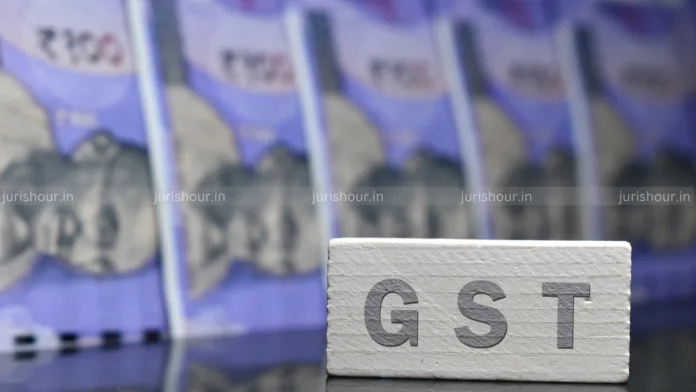The Bombay High Court has ruled that denying (Input Tax Credit) ITC on advance receipts would create inconsistency and disrupt the harmonious functioning of GST provisions.
The bench of Justice G. S. Kulkarni and Justice Jitendra Jain has interpreted Section 7 of the Central Goods and Services Tax (CGST) Act, determining that it encompasses “supplies agreed to be made” within the definition of supply. The advance payments received by the petitioner are subject to GST, thereby expanding the definition of a taxable supply.
The bench ruled that the petitioner is entitled to ITC under Section 16 of the CGST Act, based on the “Receipt Voucher” issued by the supplier.
The court stated that there is a need to harmonize the provisions of Section 16(2)(b) with Section 16(1), which allows credit for inputs “intended to be used” in the course or furtherance of business. Denying ITC to the petitioner would create an inconsistency and disrupt the harmonious functioning of GST provisions.
Table of Contents – ITC On Advance Receipts
Background
It is the petitioner’s case that accordingly, GST (Rs.32.02 crores approximately) being CGST and MGST, was leviable on the advance amounts. The MMRDA remitted Rs.32.02 crores of GST amount to the petitioner along with the advance amount, as the first tranche.
The petitioner in turn remitted the said amount in cash through the electronic cash ledger to the GST Department. The petitioner has contended that an “Advance Receipt Voucher” dated 6 March, 2018 for Rs.32.02 crores in terms of Section 31(3)(d) of CGST and MGST Act, 2017 was issued by the petitioner to MMRDA.
The petitioner contended that the entire amount received by the petitioner from MMRDA as an advance/loan was to be recovered from the bills to be raised by the petitioner in the course of execution of the contract.
The petitioner contended that on receipt of such advance, the petitioner in turn remitted the amounts to its constituent L&T together with GST of Rs.32.02 crores. L&T thereupon issued a “Receipt Voucher (RV)” dated 28 March, 2018 indicating the amount received and the GST.
Under the contract, the sequence was repeated for the next tranche of advance/loan granted to the petitioner by the MMRDA, this time an amount Rs.32.62 crores (approx) was disbursed to the petitioner in September 2018 and the same was transferred to the petitioner’s constituent L&T.
The amount of Rs.32.62 crores was treated, accounted and remitted to the GST Department similar to the first tranche, Receipt Vouchers were issued by the petitioner to MMRDA and by L&T to the petitioner.
The petitioner was precluded from availing of the Input Tax Credit (ITC) of the GST paid to L&T (its constituent) for the reason that Section 16(2)(b) of the CGST and MGST Act provided that no ITC could be taken unless the service had been received.
The petitioner contended that at such point of time, the work under the contract was in progress and/or was yet to be commenced as would be understood by the GST laws, hence, the respondent proceeded on the basis that no services had been received by the petitioner from its constituent L&T.
Another reason being that the receipt voucher-RV issued under Section 31(3)(d) of the CGST/MGST Act had not been prescribed as a “tax paying document” under Section 16(2)(a) of the CGST Act read with Rule 36 of the CGST Rules.
Petitioner’s Arguments
The petitioner contended that the statutory scheme is ex facie unreasonable as the tax is imposed on a supply “agreed to be made”, although the Constitution authorizes levy of tax only of supply. Receipt of payment (even before providing of service) is treated as the time of supply (Section 13(2)(b).
The petitioner stated that despite levy of tax, input tax credit is denied on the GST charged on such payment, until the service is actually received. Input tax credit is denied also on the ground that “receipt voucher” is not specified as a “tax paying document” under section 16(2)(a) of the CGST Act read with Rule 36 of the CGST Rules.
Dept. Arguments – ITC On Advance Receipts
The department argued that advances received on services are taxable at the time of receipt of payment/advances as per Section 13(2)(a) of the CGST Act and the same is taxable/leviable to tax as intra-state supplies of services as per provisions of section 9 of the CGST Act. The petitioner is neither an exporter nor covered by Inverted Duty Structure as enumerated in Section 54 of the CGST Act, hence, the benefit of the said provision is not available to the petitioner.
Conclusion – ITC On Advance Receipts
The court concluded that advances received on services are taxable at the time of receipt of payment/advances as per Section 13(2)(a) of the CGST Act and the same is taxable/leviable to tax as intra-state supplies of services as per provisions of section 9 of the CGST Act. The petitioner is neither an exporter nor covered by Inverted Duty Structure as enumerated in Section 54 of the CGST Act, hence, the benefit of the said provision is not available to the petitioner.
The court held that on the basis of Receipt Voucher issued by L&T in favour of the petitioner, the petitioner was entitled to avail the Input Tax Credit under section 16 of the CGST/MGST Act.
Case Details
Case Title: L & T IHI Consortium Versus UOI
Case No.: Writ Petition No. 2980 Of 2019
Date: 14/11/2024
Counsel For Petitioner: Arvind Datar, Senior Advocate
Counsel For Respondent: V. A. Sonpal, Special Counsel





